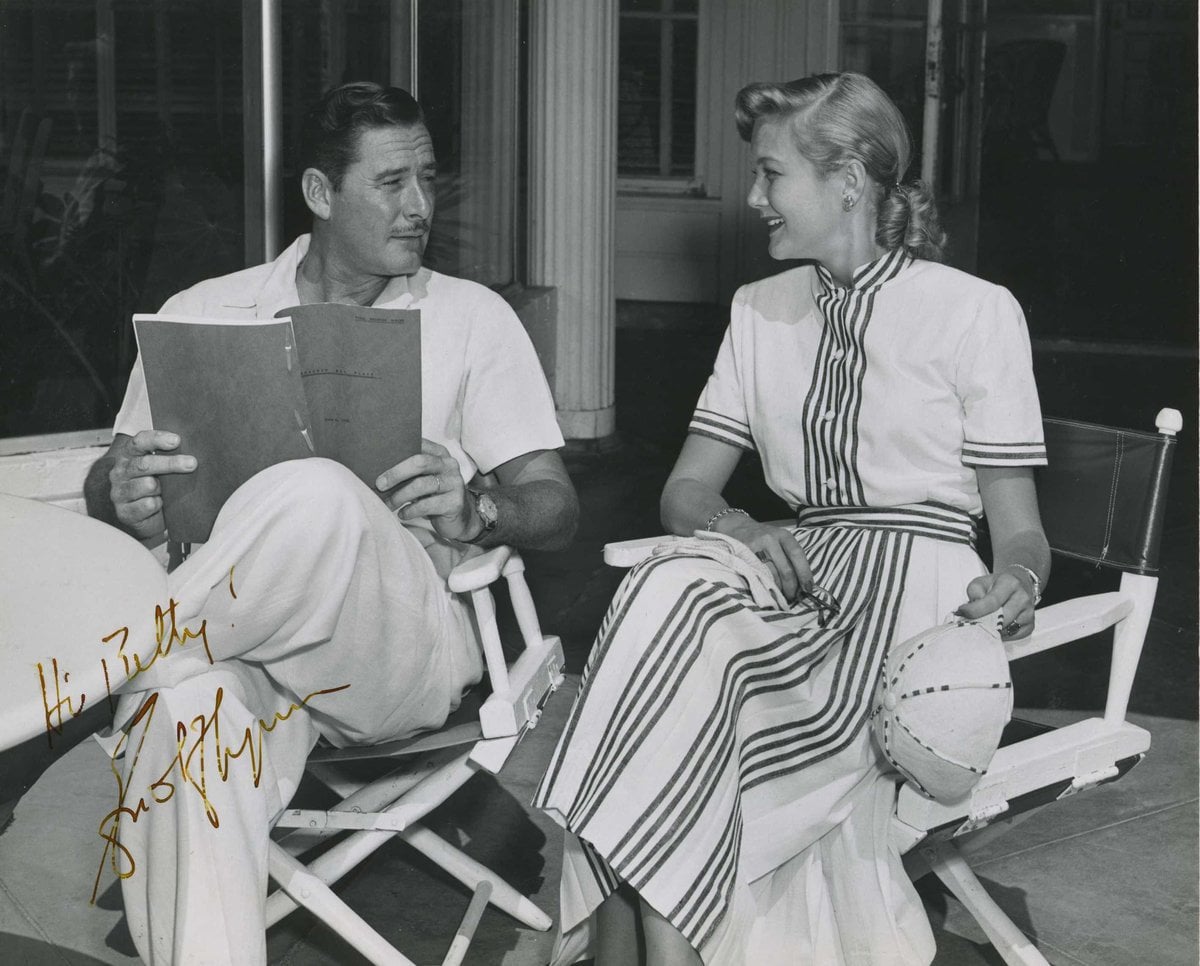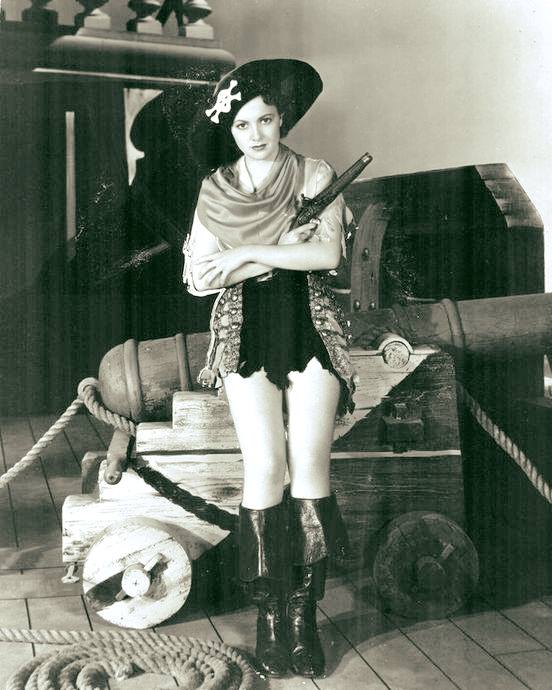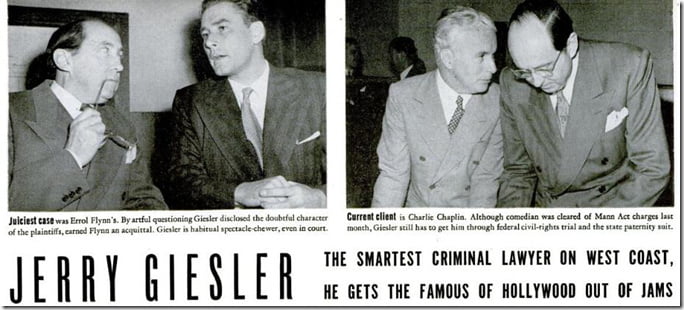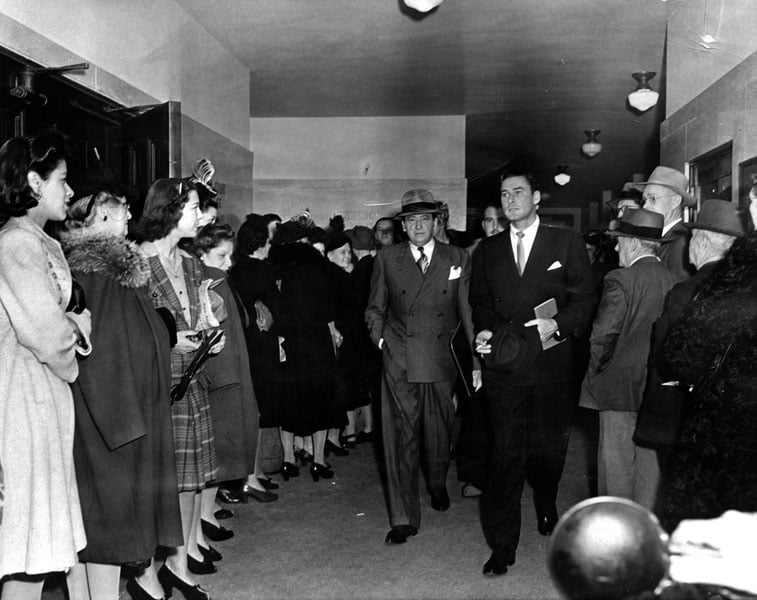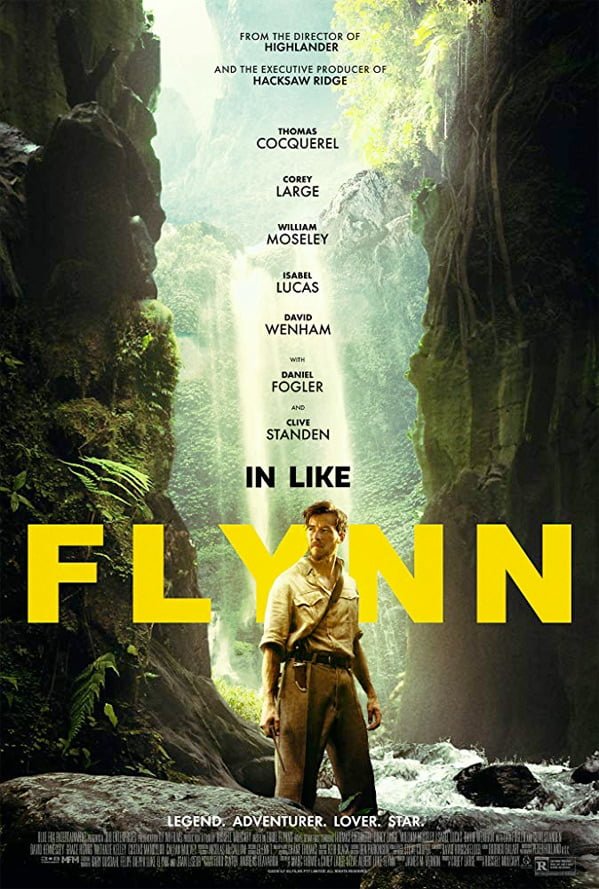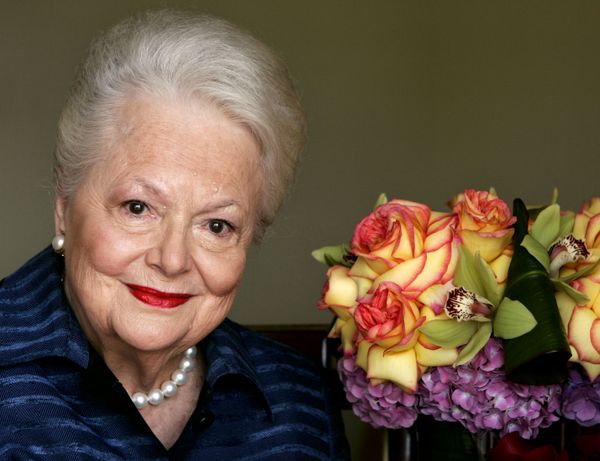“Actor Errol Flynn, left, sits at his counsel’s table with defense attorney Robert E. Ford, awaiting the start of his trial on Jan 11, 1943 in Los Angeles, on charges he committed statutory rape upon 17-year-old Betty Hansen, seated at left behind Flynn, and Peggy Larue Satterlee, 16-year-old Hollywood night club entertainer. At the left of Ford is Mickey Satterlee, Peggy’s sister. (AP Photo)”
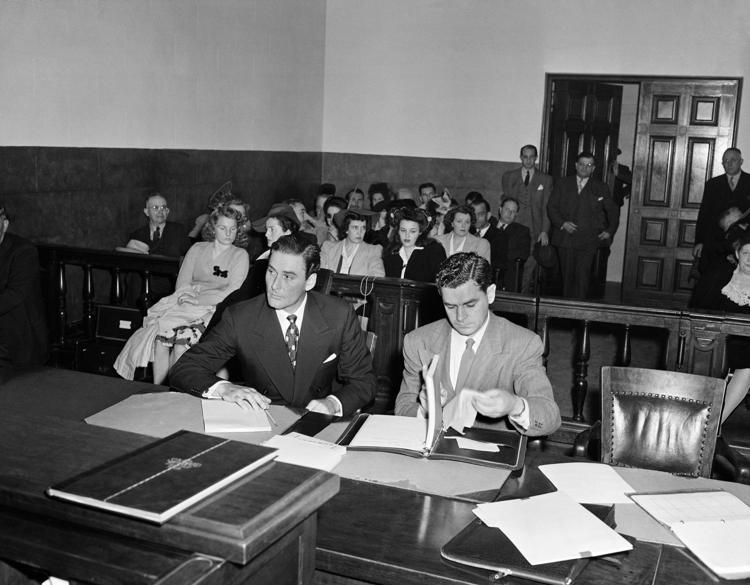
Defendant: Errol Flynn
Crime Charged: Statutory Rape
Chief Defense Lawyers: Jerry Geisler and Robert Neeb
Chief Prosecutors: Thomas W. Cochran and John Hopkins
Judge: Leslie E. Still
Place: Los Angeles, California
Dates of Trial: January 11-February 6, 1943
Verdict: Not guilty
SIGNIFICANCE: Despite the outcome, the Errol Flynn trial focused national attention on Hollywood’s sexual mores, which both titillated and shocked many Americans. The trial also put the phrase “In like Flynn” into the American language.
In 1942, Errol Flynn was at the height of his swashbuckling Hollywood career. In 10 years, the handsome native of Australia had made 26 movies—among them such overnight classics as Captain Blood, The Adventures of Robin Hood, and The Sea Hawk. Flynn lived a boisterous, daring life that was also devil-may-care. He worked hard, drank hard, loved hard. Women everywhere had fallen for his splendid physique, his cleft chin, and his enticing dimples, and women everywhere were available to him.
At a party in September 1942, Flynn met 17-year-old Betty Hansen, who arrived with a studio messenger and who dreamed of moviedom fame and fortune. By dinnertime, Hansen had thrown up from too much drinking.
The next day, Hansen told her sister that Flynn had taken her upstairs to clean up, then seduced her in a bedroom. A complaint was filed with District Attorney Thomas W. Cochran, who recalled a similar complaint by one Peggy Satterlee after a voyage aboard Flynn’s yacht. That charge had been dropped.
Flynn’s stand-in stuntman, Buster Wiles, later said Satterlee’s father had earlier approached Flynn with a demand for money, or, said Wiles, “he would lie to the police that his underage daughter had sexual relations with Flynn.”
Flynn was arrested in October. He hired Hollywood’s ace lawyer, Jerry Geisler.
Fans and sensation seekers thronged Flynn’s neighborhood, spying through binoculars, prowling over his 11-acre property, mobbing the courthouse at his preliminary hearing, pulling at his buttons and shoes.
Selecting the jury on January 11, 1943, Geisler purposely took nine women, gambling that the females’ attraction to the movie star would outweigh concern over the seduction of innocence.
Prosecutor Cochran opened with the Betty Hansen charge. Geisler’s crossexamination proved that her testimony was confused and that she was currently awaiting action on a possible felony charge with her boyfriend, the studio messenger.
Above trial history from:
law.jrank.org…
— Tim
